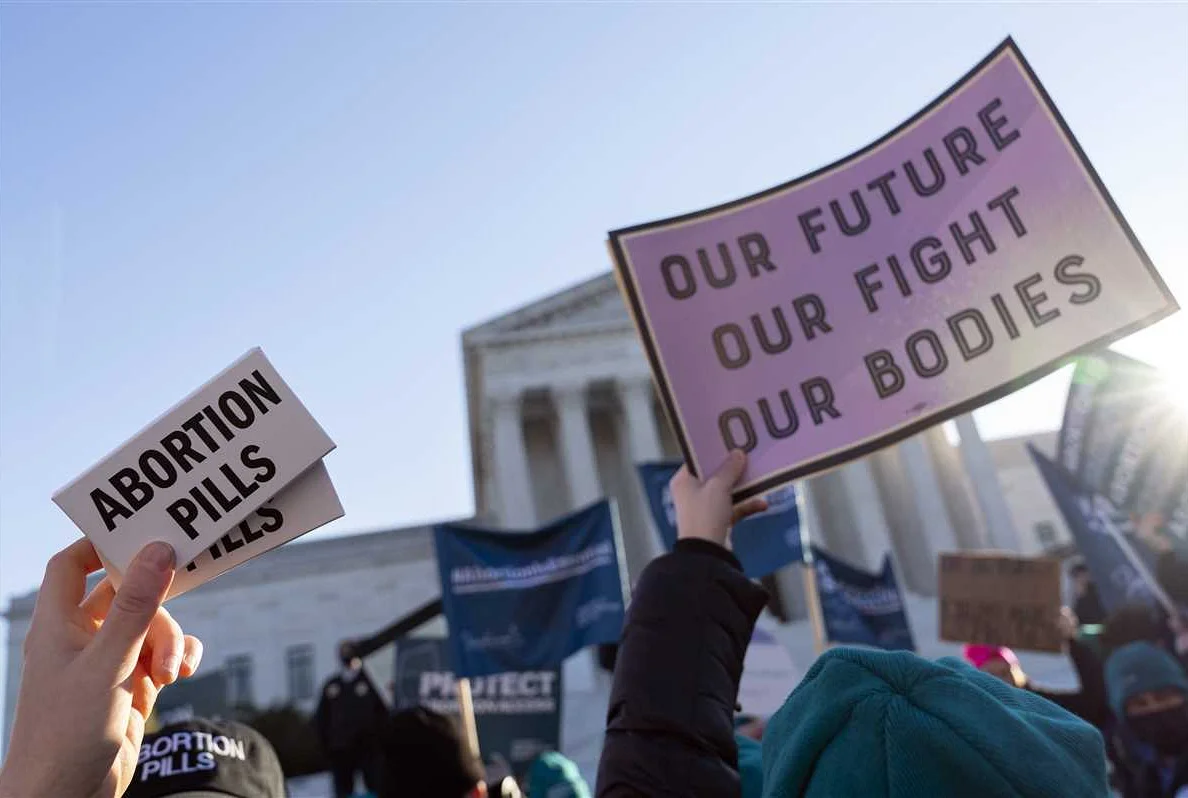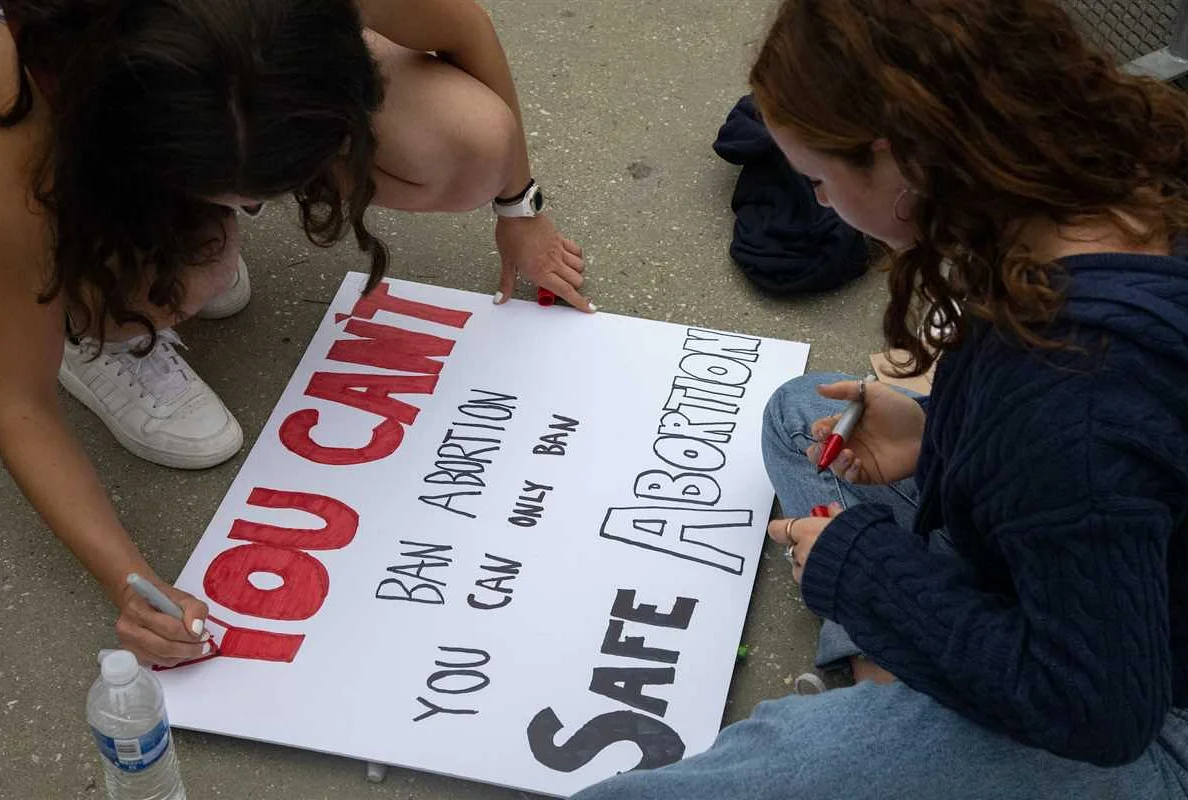Abortion: Banning is Not an Option
Содержимое
Learn why a ban on abortion cannot be allowed, as it infringes upon a woman’s right to control her own body and make choices about her reproductive health. Discover the social, economic, and health implications of banning abortion and the importance of protecting women’s reproductive rights.
Introduction
Abortion is a deeply controversial topic that has divided societies for decades. While some argue that it should be completely banned, others believe that access to safe and legal abortion is a fundamental right for women. Those who support a ban on abortion often do so based on religious, moral, or ethical grounds. However, it is important to consider the consequences of such a ban and the potential harm it could cause to women, their families, and society as a whole.
Misconceptions and stigma
One of the main consequences of banning abortion is the perpetuation of misconceptions and the stigmatization of women who seek abortions. When abortion is illegal, it forces women to seek unsafe and often life-threatening alternatives, putting their health and lives at risk. Furthermore, the stigma associated with seeking an abortion can lead to feelings of guilt, shame, and isolation for women, preventing them from accessing the support and care they may need.
Inequality and discrimination
A ban on abortion also perpetuates inequality and discrimination, particularly against marginalized groups and low-income individuals. Those with financial means can often afford to travel to countries where abortion is legal or access expensive underground procedures, while those without the resources are left with no options. This creates a two-tiered healthcare system that disproportionately impacts those who are already marginalized and disadvantaged.
Public health and population control
Banning abortion can have severe public health consequences, as it increases the number of unsafe abortions and maternal mortality rates. When women are denied access to safe and legal abortion services, they are more likely to turn to unregulated and dangerous methods, risking serious health complications and even death. Additionally, banning abortion can lead to population control issues, as unplanned pregnancies may increase without the option of termination.
Conclusion
In conclusion, a ban on abortion should not be allowed due to the negative consequences it would have on women, their families, and society as a whole. Such a ban would perpetuate misconceptions, stigmatize women, increase inequality, and have severe public health implications. It is crucial to prioritize the safety, autonomy, and well-being of women by ensuring access to safe and legal abortion services, while also promoting comprehensive sex education and access to contraception to prevent unintended pregnancies.
The Importance of Reproductive Rights

Reproductive rights are fundamental human rights that include the right to make decisions about one’s own body, sexuality, and reproductive health. These rights are essential for gender equality, individual autonomy, and the overall well-being of women and society as a whole.
One of the key aspects of reproductive rights is the right to access safe and legal abortion services. Restricting or banning abortion not only violates a woman’s right to make decisions about her own body, but it also puts her health and life at risk. When abortion is illegal, women may resort to unsafe and often life-threatening methods to terminate unwanted pregnancies, leading to a rise in maternal mortality rates.
Furthermore, reproductive rights are closely linked to economic and social development. When women are empowered to make choices about their reproductive health, they are more likely to pursue education, participate in the workforce, and contribute to the economic growth of their communities and countries. Access to contraception and family planning services also plays a crucial role in reducing poverty and improving overall health outcomes.
Reproductive rights are also essential for addressing issues of gender inequality and discrimination. When women have control over their reproductive choices, they are better able to plan their families, pursue their career goals, and participate fully in society. By limiting access to abortion, societies are effectively denying women the right to determine their own futures and perpetuating gender inequalities.
Additionally, the right to reproductive autonomy extends beyond the decision to have an abortion. It encompasses access to comprehensive sexual education, affordable contraception, prenatal care, and support for parenting and child-rearing. These rights are crucial for ensuring healthy and fulfilling lives for women and their families.
In conclusion, protecting and promoting reproductive rights is not only a matter of basic human rights but also has wide-ranging benefits for individuals and society. By recognizing and respecting the importance of reproductive rights, we can work towards creating a more equitable and just society for all.
Access to Safe Abortion Services
One of the main reasons why a ban on abortion should not be allowed is because it would limit access to safe abortion services. When abortion is made illegal, it does not mean that women will stop seeking abortions. Instead, it means that they will turn to unsafe methods to terminate their pregnancies, putting their lives at risk.
Unsafe abortions are a major public health issue. According to the World Health Organization, approximately 25 million unsafe abortions occur worldwide each year, resulting in the deaths of around 47,000 women and causing severe complications for millions more. These unsafe procedures often involve the use of unsterile instruments or substances, leading to infections, hemorrhaging, and other life-threatening complications.
By keeping abortion legal and accessible, women have the option to seek safe abortion services provided by trained medical professionals. These professionals can ensure that the abortion procedure is carried out in a sterile and controlled environment, reducing the risk of complications and ensuring the woman’s safety. They can also provide counseling and support throughout the process, helping women make informed decisions about their reproductive health.
Furthermore, access to safe abortion services also includes access to reproductive healthcare. When a ban on abortion is in place, it not only restricts women’s access to abortion but also limits their access to other critical reproductive health services, such as contraceptives, prenatal care, and post-abortion care. This lack of access can have devastating consequences, leading to unintended pregnancies, maternal mortality, and unsafe childbirths.
In conclusion, the availability of safe abortion services is essential for women’s health and well-being. A ban on abortion would only drive women to seek unsafe alternatives, resulting in unnecessary deaths and complications. By keeping abortion legal and accessible, we can ensure that women have the right to make choices about their own bodies and receive the necessary care they need.
Risks of Unsafe Abortions
One of the main consequences of banning abortions is the increase in unsafe abortions. When access to safe and legal abortions is restricted, many women turn to unsafe methods to terminate their pregnancies. These methods include self-induced abortions or seeking the help of untrained individuals.
Unsafe abortions pose significant risks to women’s health and well-being. Without access to medical professionals or proper facilities, women may resort to using dangerous methods such as inserting foreign objects into the uterus, consuming harmful substances, or undergoing invasive procedures performed by unskilled providers.
The consequences of unsafe abortions can be severe. Women may experience severe bleeding, infection, damage to the reproductive organs, and even death. In countries where abortions are illegal or heavily restricted, unsafe abortions are a leading cause of maternal mortality.
Furthermore, unsafe abortions can also have long-term consequences for women’s health. Complications from unsafe procedures can lead to chronic pain, infertility, and other reproductive health issues. These consequences can have a lasting impact on women’s physical and mental well-being.
The risks of unsafe abortions also extend beyond individual women. When women are forced to seek unsafe abortions, it puts a strain on healthcare systems and resources. Hospitals and healthcare providers must deal with the complications and consequences of unsafe abortions, leading to increased costs and reduced availability of healthcare for other patients.
By not allowing access to safe and legal abortions, society is not only endangering women’s lives but also burdening healthcare systems. The risks and consequences of unsafe abortions underline the importance of ensuring that women have access to safe and legal reproductive healthcare options.
Impact on Women’s Health and Well-being

Restricting access to safe and legal abortion has serious implications for women’s health and well-being. When a ban on abortion is in place, women may resort to unsafe and illegal methods to terminate their pregnancies, putting their lives at risk.
Without access to safe and legal abortions, women may turn to back-alley abortions or attempt dangerous self-induced abortions. These methods often involve the use of unsterilized instruments or harmful substances, leading to severe complications and even death. According to the World Health Organization, unsafe abortions contribute to approximately 13% of maternal deaths worldwide.
Additionally, the mental and emotional toll on women facing an unwanted pregnancy can be significant. Forcing women to carry unwanted pregnancies to term can lead to increased levels of stress, anxiety, and depression. It may also have long-term effects on their mental health and well-being.
Women should have the right to make decisions about their own bodies and reproductive health. Access to safe and legal abortion services is crucial for ensuring women’s overall well-being and maintaining their bodily autonomy.
Furthermore, restricting access to abortion disproportionately affects marginalized and vulnerable groups, including low-income women, women of color, and individuals living in rural areas. These groups already face barriers to healthcare and may have limited resources to travel to areas where abortion services are available. Implementing a ban on abortion exacerbates existing health inequalities and further marginalizes these populations.
Overall, it is imperative to consider the impact of a ban on abortion on women’s health and well-being. By maintaining access to safe and legal abortion services, we can protect women’s lives, physical health, and mental well-being, while affirming their right to make decisions about their own bodies.